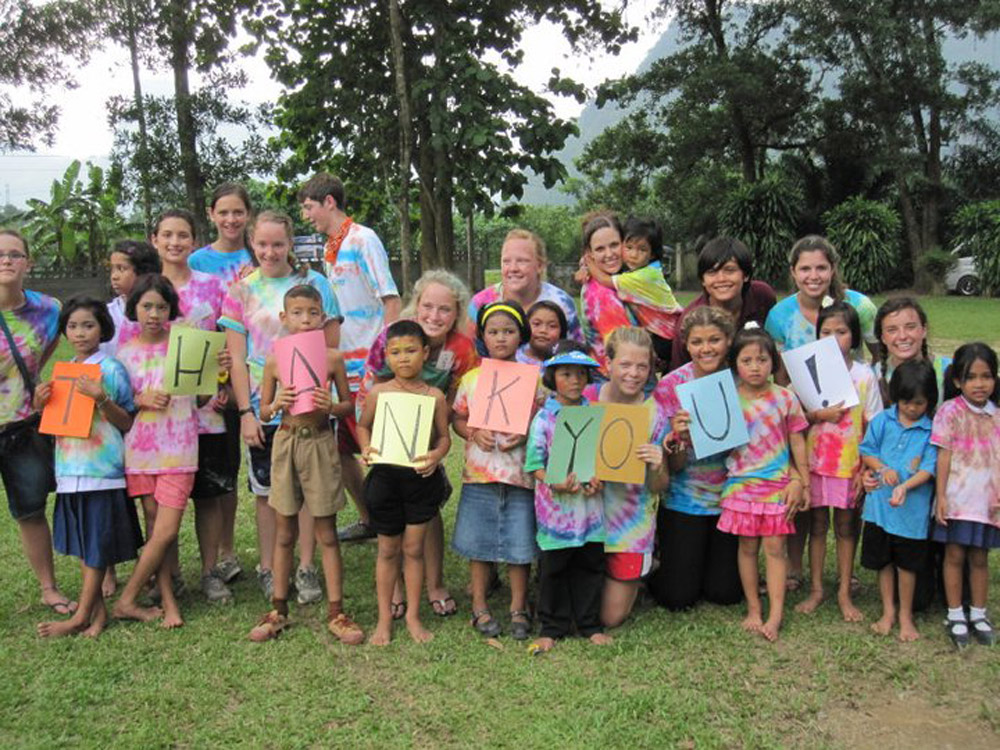The summer is finally coaxing us all out of hibernation and across the country excited new interns are joining the workforce in a bizarre new world. I have been working remotely for a couple of years, so I have managed to figure out a routine that I love. I also had the benefit of spending five years in the office, bumping into people in the elevator, grabbing a drink with a mentor, building relationships by simply being in their line of sight.
Fortunately, the basics of a successful internship haven’t changed drastically. They just need to be modified slightly for a virtual experience. Our interns recently asked me for advice on how to manage expectations and get feedback, so I pulled together this list and decided to share it here.
Before we jump into the top 10, a word on feedback. People seem conditioned to say they love feedback. Tell me how I’m doing all the time. Give me all the feedback.
But honestly, think about the last time someone walked up to you and just said, “hey, let me tell you what you’re doing wrong.” You likely became a little defensive. Recent neuroscience research has shown that, whatever rational ideas we have about feedback, our brains don’t like it. They go into fight or flight mode.
Luckily for all of us, there are subtle ways to hack that response so we don’t have to stumble around blindly forever. Simple changes of language can shift the way our brains process the information. Instead of saying, “Here’s what you should do” (attack/demand) you might say “Here’s what I would do” (exploration/sharing). This article from Fast Company talks about some of this research if you’re interested in learning more.
And now the Top 10…
Setting Expectations
1. Ask how and when to communicate
Everyone’s schedule has been disrupted. You can’t just walk over to someone’s desk to ask a question when you have a minute. Ask specifically when and how your manager wants to communicate. Maybe 4-6 is dinner/family time, but they’re online from 6-8. This is even more important with international teams who make work late evenings or early mornings to flex globally.
Use the same principles in reverse. It’s really easy to try to be available 24/7. Don’t do it. Set clear boundaries and communicate to your team how and when you’re available. No one else is going to manage your boundaries for you.
2. Clarify the work
Pretending you know what someone is talking about and not asking questions so you can “look smart” is a fool’s errand. What’s the scope? When does it need to be delivered? How do they want you to check in? Who are the stakeholders?
A useful tip is to follow up a meeting with an email, documenting what you discussed and what you’re going to do. This will save you and your manager both heartache when you check in after a week of working on a project and find out it’s not at all what they had in mind.
3. Provide options
I often get asked how to manage multiple priorities and stakeholders. Chances are, your manager is not the only one giving you work to do, and they probably don’t know how many other projects you’re working on. When someone asks you for the sixth urgent thing that you can’t possibly add to your plate, you don’t have to say no. You can say, “yes!” (feels good for everyone) “I have these five projects I’m working on. Do you need me to prioritize this and put the other five on hold to the end of the week, or is this something that can wait a little bit?”
4. Follow up! Don’t wait to be asked
There are very few actual emergencies in corporate America and most of the time people can give you a few extra days to tackle everything.
When you’re given something to work on, ask when they want you to check back in with an update. You can also tell them up front when you’ll get back to them. “I’ll start working on this right away. Is it okay if I get a draft to you on Tuesday?”
They won’t be able to see you just ask for the status when it crosses their mind. Try to anticipate what your team needs and provide it before they have to ask. Just because there isn’t an immediate deadline doesn’t mean you should dawdle. The quicker you can get things done, the more reliably you will be perceived and the more interesting projects you’ll be able to work on.
5. Ask about culture and style
Most company norms and behaviors don’t come across easily in a virtual environment. You can’t pick up cues on dress code, energy levels, when people socialize and linger and when they’re heads down and focused. Is your team one that casually gets to a meeting five minutes after the hour or are they all dialed in one minute early? (Pro tip: be one minute early. It’s a handful of weeks. You can do it.)
If you’re planning to make a decision at the end of the summer about whether you want to join this company full time or not, ask questions that will help you get a sense of what the attitudes or behaviors are. This is a great time to ask how they’ve seen leaders handle issues that come up with mental health or in a moment of crisis.
On Feedback
6. Know what you want
Be specific about what you’re asking for. Don’t generalize with “do you have any feedback for me?” People want to be helpful, but it’s hard when they don’t know what you’re trying to improve. Are you trying to strengthen your executive presence? Are you trying to tighten your communication so it’s more focused and deliberate? Tell them what you’re trying to accomplish and let them respond to that specific goal.
7. Provide a structure
Something as simple as “what’s one thing that worked well and one thing that needs to be improved?” is incredibly helpful and will get you quicker responses. The internet has loads of simple feedback structures you can use.
8. Give advance notice
If you want to make sure no one ever gives you useful feedback, wait until the last five minutes of your meeting and just say, “by the way, do you have any feedback for me?”
As an intern, you do need to know how you’re doing and there is a broader arc beyond specific deliverables. When you’re ready for that overall how-am-I-showing-up-at-my-job-and-will-I-get-an-offer kind of feedback, make sure you schedule a specific meeting for that conversation and share the agenda in advance. For an internship, I would plan about once a month. Too frequently doesn’t give you time to respond and incorporate what you learn.
9. Ask for examples
It’s incredibly difficult to do something successfully the first time when you’ve never seen it done before. That’s why I watched a million YouTube videos before I tried tearing apart my motorcycle to clean the carburetor. I couldn’t even figure out where to get started on my own.
The same will be true for work projects. Ask people for examples of when things have worked really well. Ask what style has worked for them in the past. What kind of deliverable are they looking for? Do they have a template you can use? Emulate the best.
10. Address the elephants in the room
Don’t shy away from hard conversations that everyone else is avoiding. Address them head on and you will usually come out ahead. Use the advantage of being new to the team to make observations that others might be overlooking.
Right now an elephant might be pervasive burnout on a team that no one is talking about. Be discreet and kind, but try to probe the issue into the light. You might raise this with your manager by saying, “I noticed every time I meet with someone individually, the casual conversation is about how stressed out they are and they feel overwhelmed about the amount of work they have on top of being stuck at home with kids. But on team calls, no one mentions it and everyone talks as if it’s fine and normal. Am I reading that right? Is there anything I can do to help the team to balance the load? Or would be it be appropriate if we talk about this specifically in our next staff call and see how we can support each other better?”
Bonus: Leave an impression
This is a misnomer because, of course, you can’t help but leave some kind of impression at the end of the summer. Own that impression and make it a memory that you want to leave behind.
If someone isn’t sitting next to you, what are they missing out on? Find ways to share your passions, your quirks, your personality. Part of the beauty of working on a team is being surrounded by weird, funny, caring, messy human beings. Try to get past the sanitized environment of video conferences and share your life outside of work. You can do this by having cool art that you’re passionate about in the background or wearing bow-ties on Fridays. However you do you, don’t leave it behind when you come to work.
What do you think? How have you adjusted to being on a remote team? Any other tips you’ve learned along the way?














